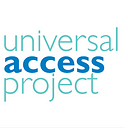“This Experience is Changing Our Lives:” Reaching the Most Vulnerable in Venezuela With Critical Reproductive Health Care
By Seema Jalan
“Everybody in the office has been mugged at gunpoint.”
This is the harrowing reality of staff on the front lines of responding to the humanitarian crisis in Venezuela, says Jorge González, Country Representative for the UN Population Fund (UNFPA), the UN agency dedicated to reproductive health and rights.
“We all have family members who have migrated to escape this situation,” he added. “We all have a relative who has fallen ill and experienced the nightmare of not finding medicines, or the pain of watching them die because the public and private health system is on the brink of collapse.”
When turmoil strikes at the highest level of political office, a health care system disintegrates, and an economy plummets, accessing even the most basic supplies and services can be difficult. And for those tasked with humanitarian response, such as the staff at global institutions like UNFPA, the job comes with unique risks that are forcing them to adapt at every turn.
Escalating political, social, and economic hardships in Venezuela mean everyday essentials are put out of reach for the people who need them the most. Citizens face hours-long lines for food, gas, public transportation, and health centers, and at the end of the line, often find nothing due to widespread shortages of staff, supplies, food, and medicine. UN High Commissioner for Human Rights Michelle Bachelet called the collapse of health care in the country “extremely critical,” and directed a team from her office to remain in Caracas to monitor and report on the human rights situation. The team’s first report, released earlier this month, outlines what it calls “grave violations,” including a particular impact on girls and women: Lack of access to contraception, skilled birth attendants, medical supplies, safe abortion, and quality health care centers has been tied to increased adolescent pregnancy and maternal mortality. Girls and women in Venezuela are also facing rampant sexual and gender-based violence, including pressure to exchange sex for food or protection, according to the report.
But the UN system is responding: UNFPA and UNICEF are moving hand-in-hand to address to these critical needs of children, adolescents, mothers, and pregnant women within and fleeing from Venezuela by sharing information and technical resources on health, nutrition, water, hygiene, gender-based violence, and more. UNFPA is providing dignity kits with essentials like soap, underwear, and sanitary napkins; Equipping hospitals, health centers, and health care providers with training and sexual and reproductive health supplies like contraception and STI testing; And offering counseling and services for survivors of gender-based violence. In the midst of the mass exodus of migrants and refugees fleeing into other countries — an estimated 4 million to date — UNFPA is even training volunteers within the migrant communities to conduct outreach, disseminate health information, and refer survivors of gender-based violence to services.
Despite this, the U.S. Administration decided to withhold funding from UNFPA for the third consecutive year without cause. The US government helped create UNFPA 50 years ago and with bipartisan support in Congress had previously been a top donor to the type of life-saving work that is being done on the ground in Venezuela.
“While everyday needs are overwhelming, we all wear our orange T-shirts and blue vests with pride. And UNFPA’s mission is embedded in our hearts,” said González. “We are all trying to help the people around us. We do everything with passion, humanity and an unbiased, neutral and independent attitude. This experience is changing our lives.”
Learn more about the Universal Access Project and get involved at www.universalaccessproject.org.
